The 5 Senses Worksheets for Ages 4-8
13 filtered results
Difficulty Level
Grade
Age
-
From - To
Subject
Activity
Standards
Favorites
With answer key
Interactive


Matter: Assessment 1 Worksheet
Have your children learn that anything that has weight and takes up space is matter. Examples include buses, tables, people, animals, and more. Use this worksheet to help them identify the objects and circle the soft, red, and small one; the liquid; and the smooth, black, and round one.
Matter: Assessment 1 Worksheet
Worksheet
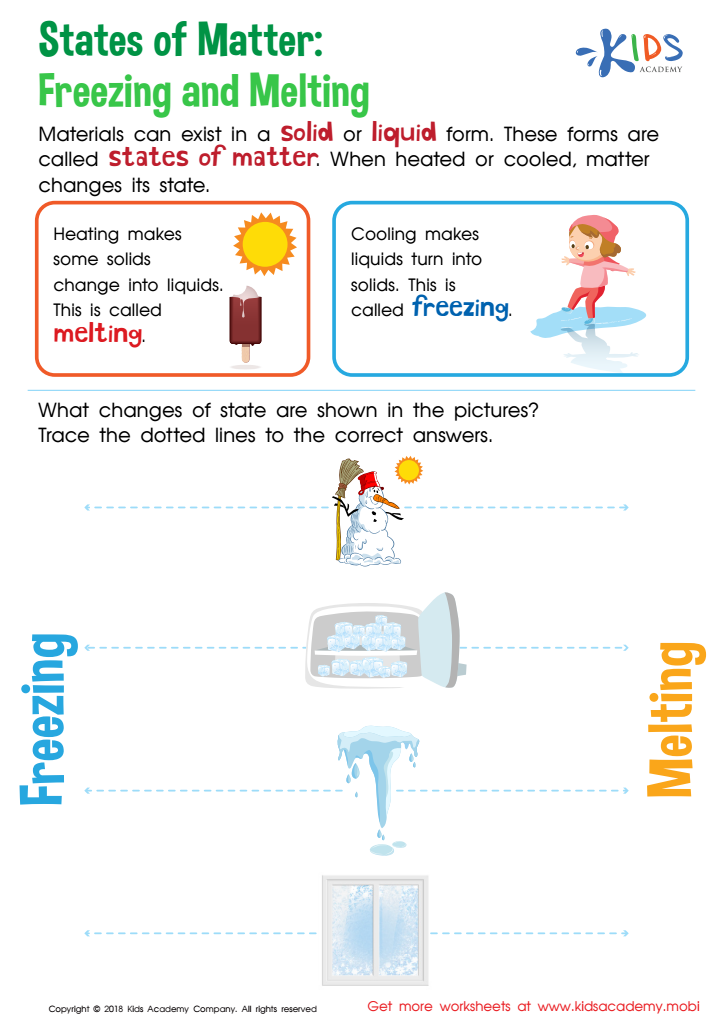

States of Matter: Freezing and Melting Worksheet
Have students look through the pics in the worksheet. Ask them what changes of state are shown, then trace the lines to the right answers. Matter can come in liquid or solid form, and changes between the two when heated or cooled (melting/freezing).
States of Matter: Freezing and Melting Worksheet
Worksheet
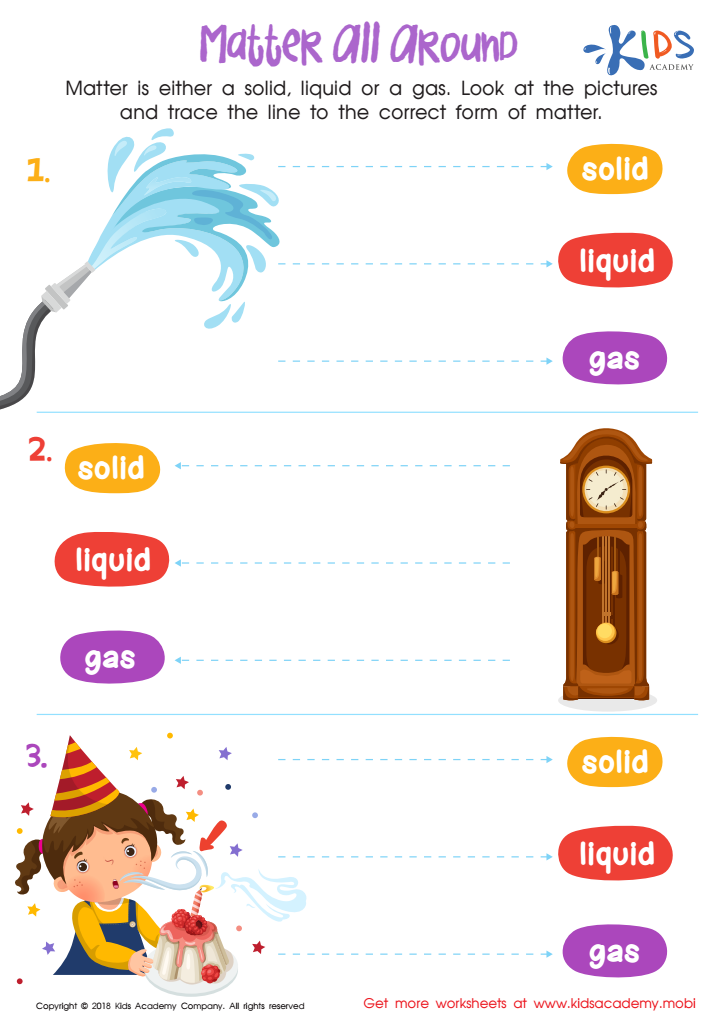

Matter all Around Worksheet
Have you taught your students about matter? Use this worksheet to help them understand that matter is anything that has weight and takes up space, either as a solid, liquid, or gas. Guide them to trace the line to the correct form of matter as they look at the pictures. This will be easy if they already know the topic, but it's also a great opportunity to teach them.
Matter all Around Worksheet
Worksheet
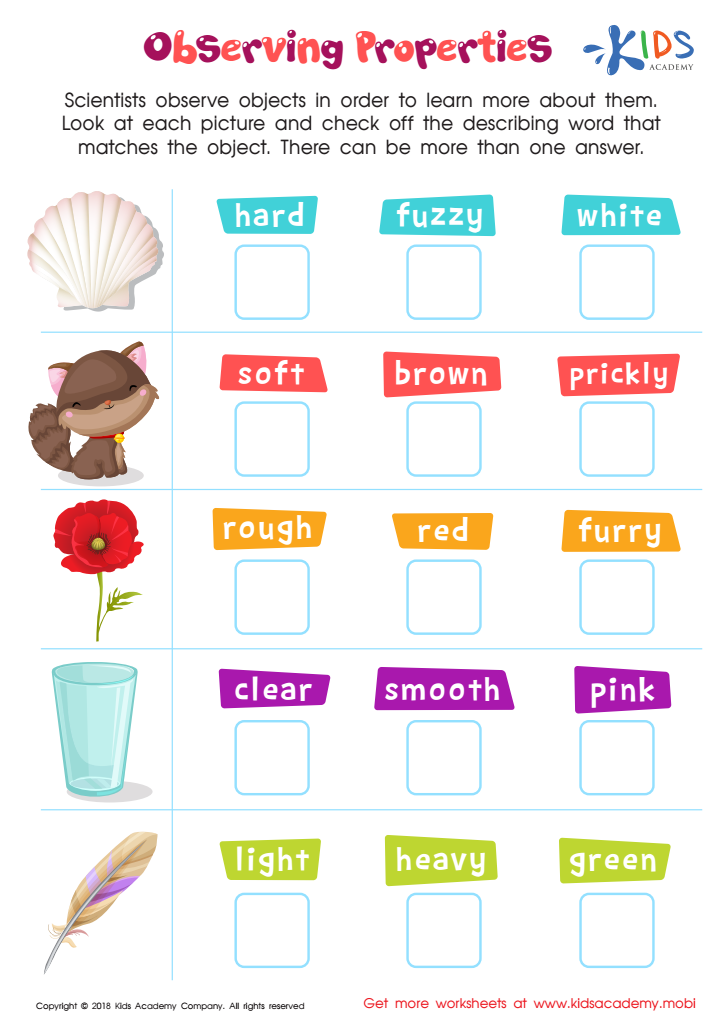

Observing Properties Worksheet
Encourage your kid's interest in science with this fun worksheet! Let them identify the five objects on the left, then choose the most accurate word from the options on the right. There might be more than one answer, so remind them to take their time observing the objects.
Observing Properties Worksheet
Worksheet
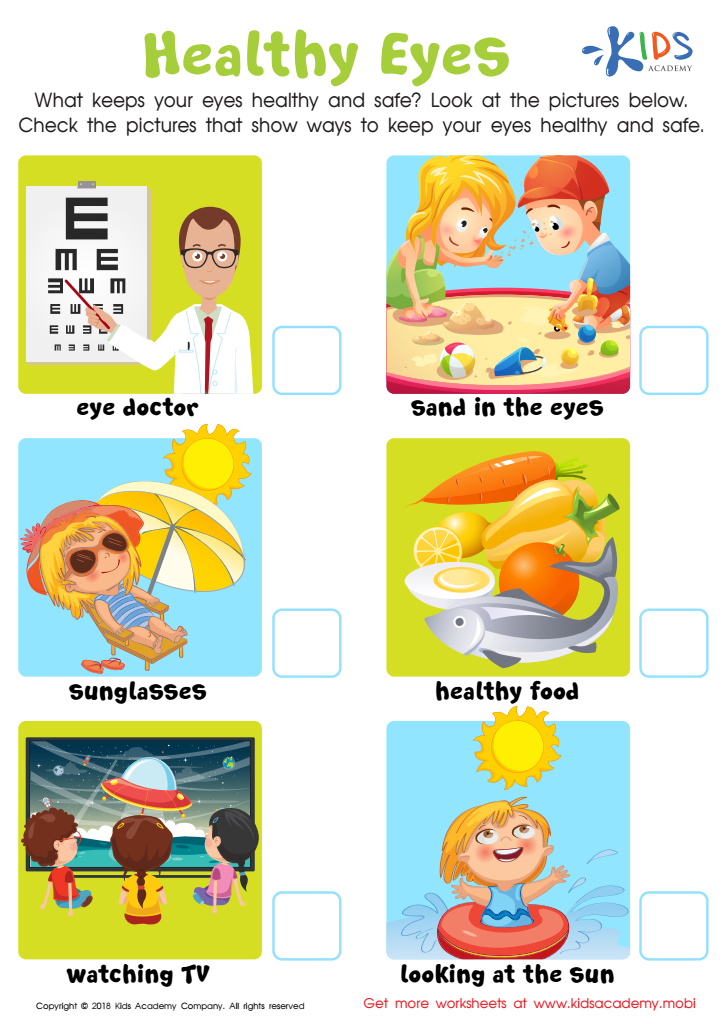

Healthy Eyes Worksheet
Does your child know how to care for their eyes? Help them understand with this worksheet. Look through the pictures together and discuss the different ways to keep the eyes healthy and safe. These include visits to the doctor, wearing sunglasses, and eating healthy food.
Healthy Eyes Worksheet
Worksheet
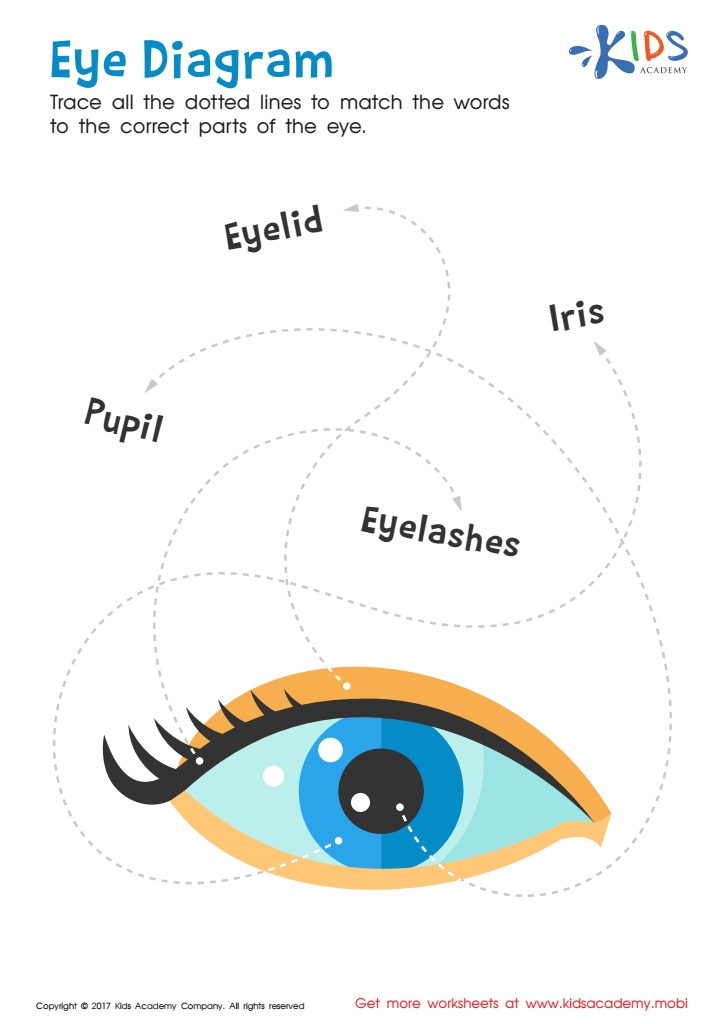

Eye Diagram Printable
Toddlers can locate their eyes, but older kids can learn the specifics of eye anatomy. This worksheet offers a fun way to explore the subject!
Eye Diagram Printable
Worksheet
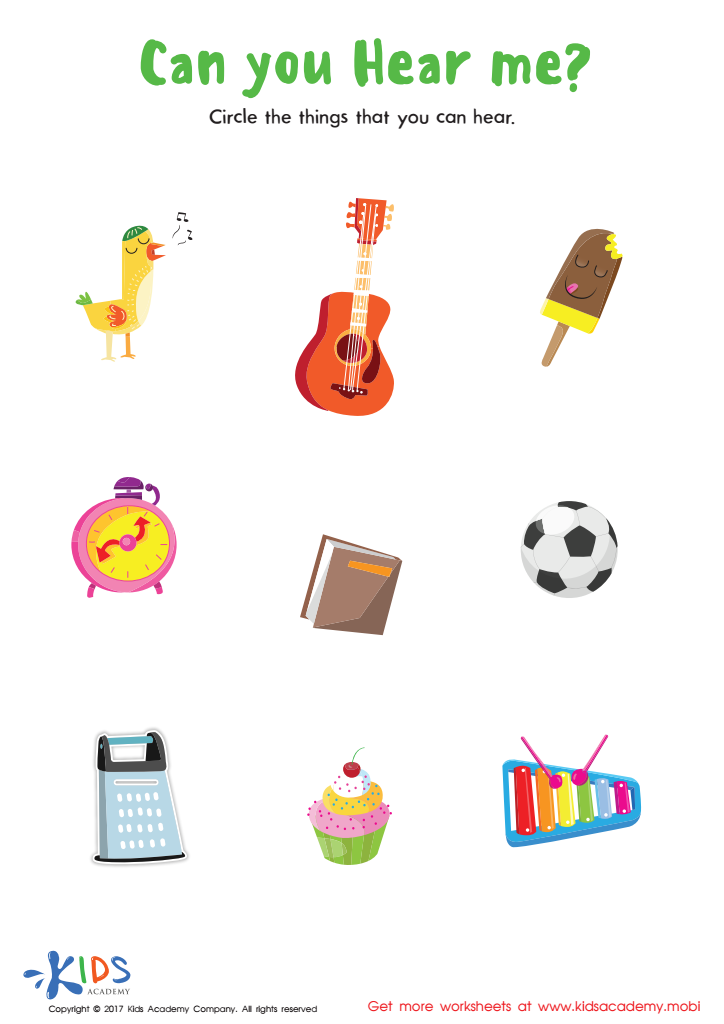

Can You Hear Me Worksheet
Challenge your child's thinking and help them learn by using this cute "Can You Hear Me?" worksheet. It encourages use of prior knowledge to identify objects that make sounds, developing critical thinking skills. As they imagine balls and cupcakes making sounds, your child will have plenty of laughs. Extend learning by talking about the sounds and why certain objects make them.
Can You Hear Me Worksheet
Worksheet
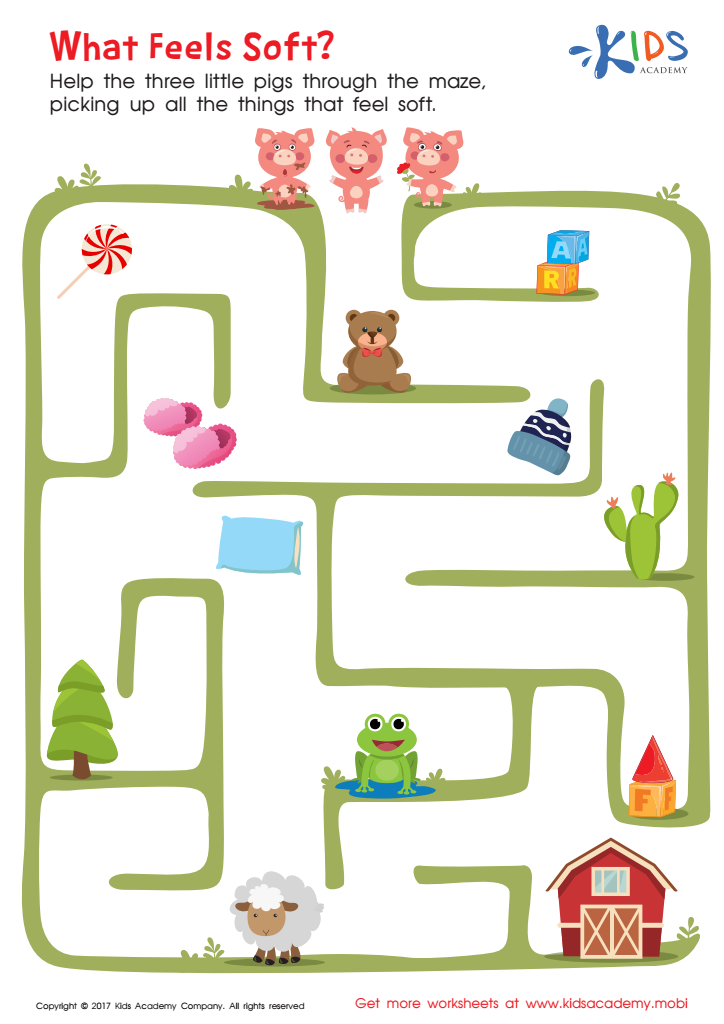

What Feels Soft Printable
Help your child learn to describe their perceptions! Improve their problem solving and critical thinking skills by having them identify soft objects in our What Feels Soft printable maze. Talk about the textures of other pictures and explore similar textures at home. This will help them understand and communicate their feelings better.
What Feels Soft Printable
Worksheet
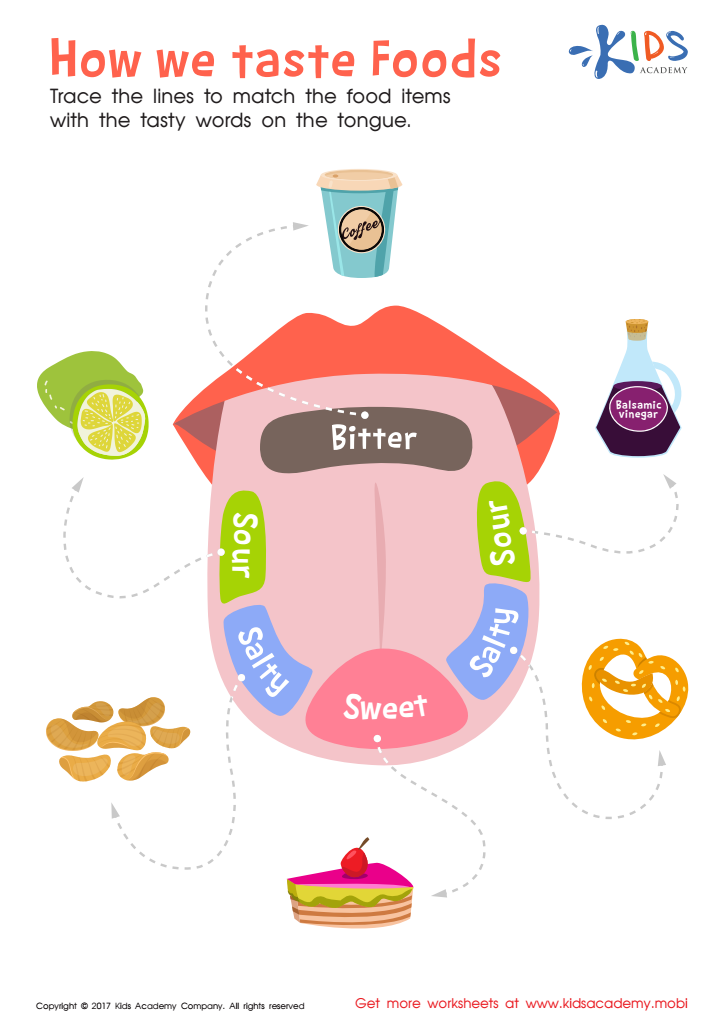

How We Taste Foods Worksheet
Learning sensory language is key for kids to express themselves and gain new words to explain their perceptions. This worksheet helps them learn the tastes that their tongue can perceive. It's important since kids lack the words to describe complex senses and introduces new vocabulary. For a fun review, have a snack and ask them to identify the tastes and determine if it's sweet, salty, bitter, or sour.
How We Taste Foods Worksheet
Worksheet
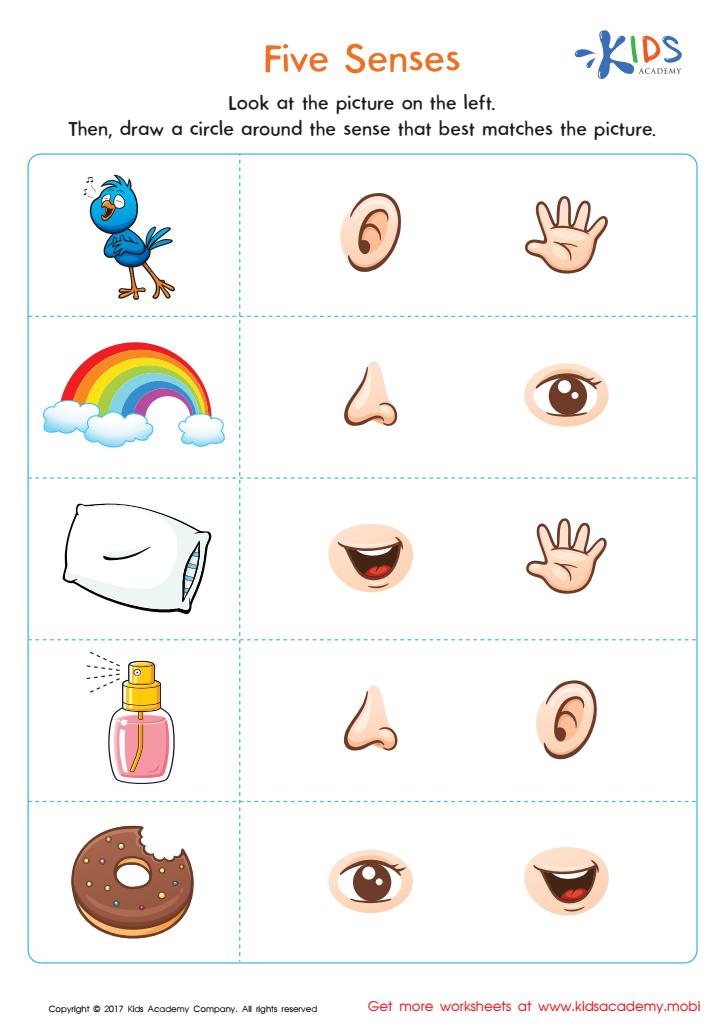

Five Senses Printable
For an easy way to jumpstart your child's critical thinking and introduce the five senses, print our free worksheets! These are great for reviewing each sense and practicing critical thinking skills. Work with your child and discuss each image. After completing the worksheet, find objects around the house so they can quiz themselves!
Five Senses Printable
Worksheet
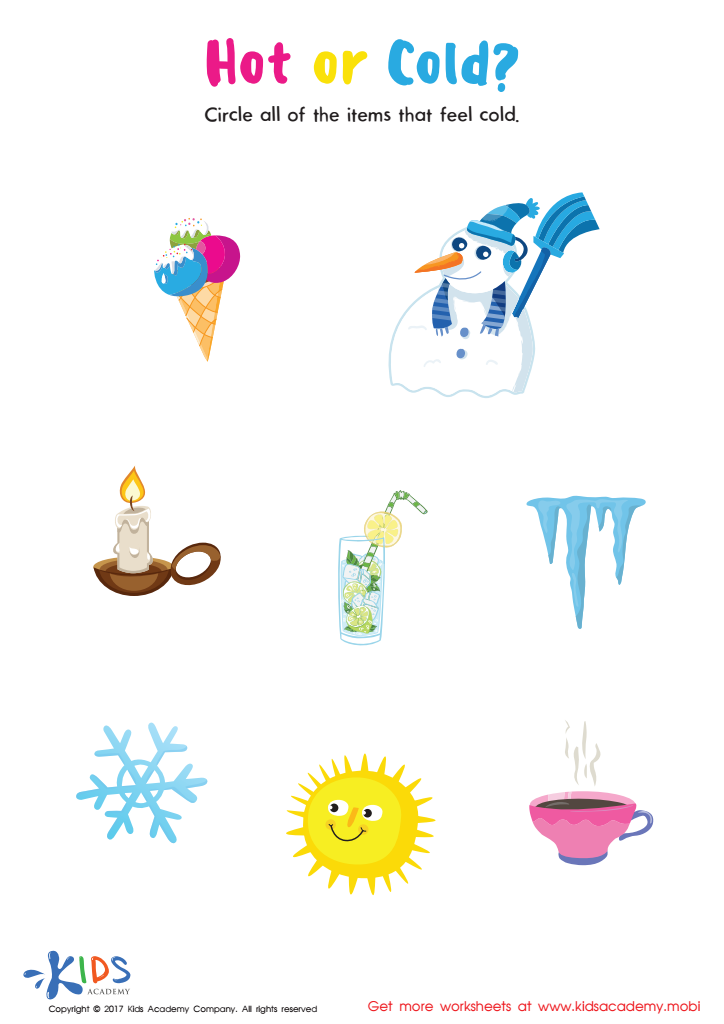

Hot or Cold Printable
Help your child stay safe with this hot or cold worksheet! It promotes problem solving skills and teaches the important concept of temperature differences. Plus, it’s fun! Get your child to learn by playing.
Hot or Cold Printable
Worksheet
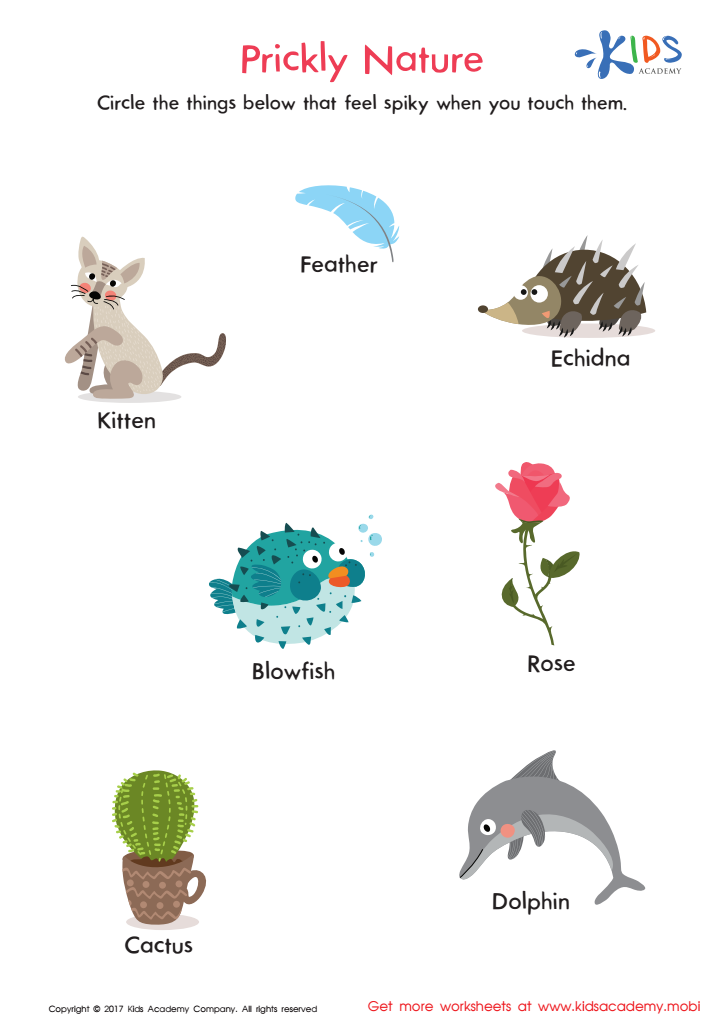

Prickly Nature Worksheet
Help your child stay safe and enhance critical thinking skills with this prickly nature worksheet. It can help them recognize spiky objects in their environment by teaching them to differentiate between prickly and soft textures. Plus, your kid will learn how to admire and avoid them. Get started today!
Prickly Nature Worksheet
Worksheet
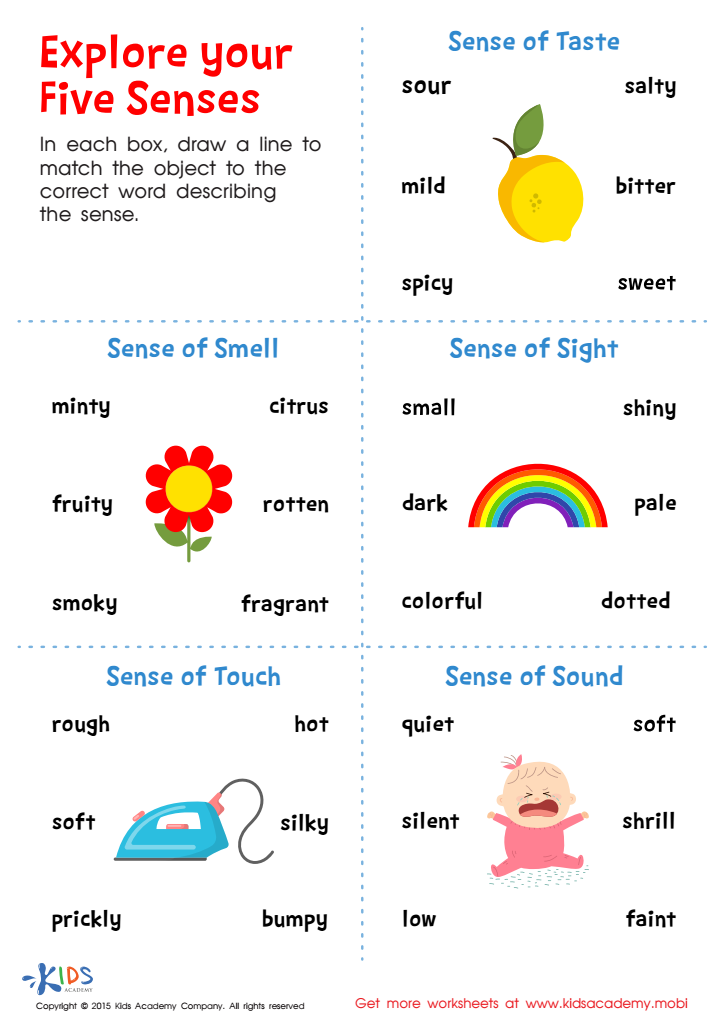

Explore Your Five Senses Printable
Encourage your child to use their senses and build their vocabulary with this 5 senses matching worksheet. Read, define unfamiliar words and connect each adjective with examples from real life. Help your child recognize and use sensory words in their daily vocabulary and writing. Get the most out of this resource and help your learner practice reading!
Explore Your Five Senses Printable
Worksheet

 Assign to the classroom
Assign to the classroom






